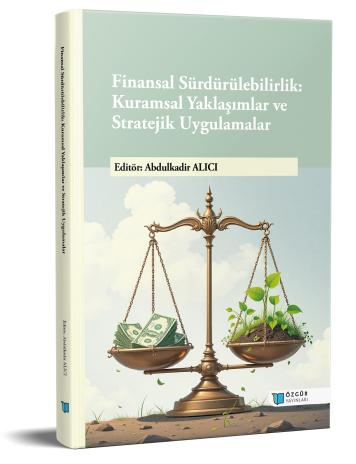
The Framework and Theoretical Foundations of Climate Finance
Chapter from the book:
Alıcı,
A.
(ed.)
2025.
Financial Sustainability: Theoretical Approaches and Strategic Applications.
Synopsis
This study examines the theoretical foundations and conceptual framework of climate finance, highlighting its growing importance in the context of sustainable development and global climate policies. It emphasizes that climate change goes beyond being an environmental issue and leads to structural transformation in economic and social policies. The study addresses mitigation and adaptation strategies, the two principal axes of climate finance, and examines their contributions to energy efficiency, reduction of greenhouse gas emissions, and increased social resilience. A literature review shows climate finance positively affects emission reduction, green growth, inclusive development, and energy security; however, discussions continue on governance structures, private sector participation, and financial integration. Furthermore, criteria for effective financing allocation within the 4R framework (right people, right time, right amount, correct cost) were evaluated. Financial instruments such as green bonds, carbon markets, and multilateral fund mechanisms play a decisive role in mobilizing public and private resources. The literature review demonstrates the effectiveness of financial instruments such as carbon pricing, green bonds, carbon markets, the Green Climate Fund, and other multilateral funding mechanisms. The literature review demonstrates the effectiveness of financial instruments such as carbon pricing, green bonds, carbon markets, the Green Climate Fund, and other multilateral funding mechanisms. Consequently, it is argued that climate finance is not only a strategic tool for ensuring environmental sustainability but also for reshaping development policies; and that developing effective, inclusive, and innovative financing mechanisms is critical to achieving global climate goals. The study also emphasizes that interest in climate finance has increased significantly since the Paris Agreement and that involving private sector investments and public resources is of critical importance. In conclusion, climate finance is considered a policy tool that supports environmental sustainability and a strategic instrument in economic governance. Therefore, it is argued that future academic and applied research should focus on measuring the effectiveness of funds, addressing inequalities, and developing innovative financial mechanisms.

